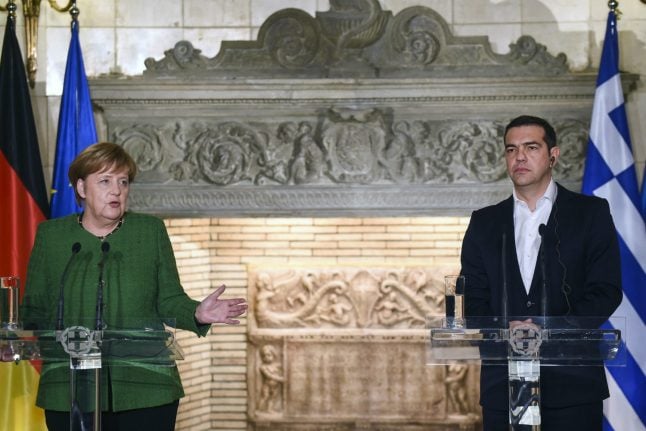“Of course the government will work closely and in the spirit of partnership with the new Greek government,” said the spokesman, Steffen Seibert.
“This offer applies both to jointly overcoming the debt crisis, and to the challenges posed by the refugee situation, for which we need common answers.”
Tsipras is almost certain to have been re-elected as Prime Minister, as with 50 percent of ballots counted in Greece's general election on Monday, his Syriza party led conservative challengers New Democracy with 35.5 percent to 28 percent of the vote.
The fact that Tsipras won so comprehensively has surprised many commentators who consider a bailout deal signed with creditors in July to be proof he reneged on promises made to the Greek electorate upon his election to office in January.
Greece, which has suffered five years of economic crisis, in July signed a third loans-for-reforms deal with international creditors, saving it from a chaotic exit from the eurozone.
It has also been a frontline country as Europe faces its biggest migrant crisis in decades, with tens of thousands of people fleeing the Syrian war and other conflicts landing on Greek islands close to Turkey.
Seibert said on Greece's financial and economic woes that “we have a very clear basis for overcoming the debt crisis, and that is the agreements in the third aid package”.
He stressed that the deal was signed “not with some government, but with the Hellenic Republic… That means it remains valid in its entirety, beyond elections and changes of government”.
“And on this basis, we and certainly the other European partners will cooperate with the new Greek government.”



 Please whitelist us to continue reading.
Please whitelist us to continue reading.
Member comments